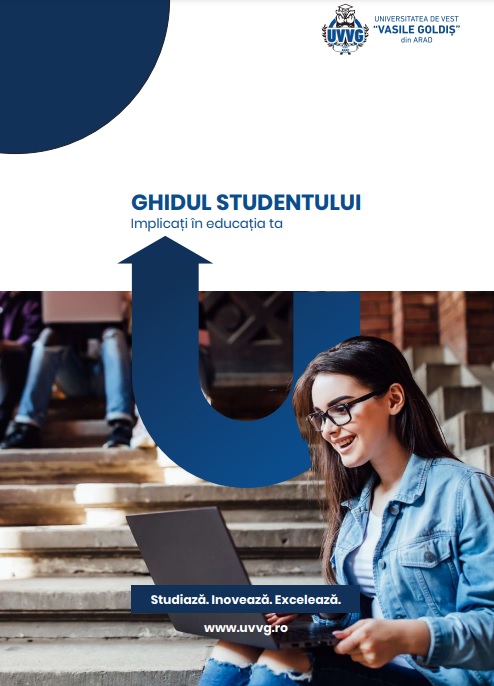Hartlib Circle and the Advancement of Learning
Hartlib Circle and the Advancement of Learning: Disseminating Knowledge in the Mid-Seventeenth-Century England
PD grant awarded by the CNCS, 2011-2013 (PNII-RU-PD-2011-3-0083)
This is a two-years research grant for a project aiming to investigate a particular problem: the way in which Samuel Hartlib used the Baconian theme of “The Advancement of Learning” and its literary form, The New Atlantis as a device to promote collaboration at a European scale.
A relatively novel trend in the study of early modern thought emphasizes the moral sides of the “scientific revolution” seen as a major project to reform the human being (Gaukroger, 2001; Jalobeanu, 2006, 2008). According to this direction of interpretation, the new science, or – in actor’s categories – the „new philosophy” (in itself no more than a rewriting and updating of one or another of the ancient philosophies) is a major moral project and produces the „modern science” only as a secondary outcome. Within this interpretative trend, the key figure of Francis Bacon is of a major importance. He is in many ways a turning point from a “practical” (i.e.moral) philosophy (Gaukroger, 2001, Harrison, 2006) to a more theoretical (i.e. scientific) philosophy. This is not however how Bacon was read by his contemporaries and by the first and second generation of Baconians. Quite on the contrary: Bacon’s project for the advancement of learning was the focus of moral, religious and political thought before being a scientific manifesto. And when it became a scientific manifesto it was because of its moral, political and religious character.
Key for this kind of reception is Hartlib Circle: a complex network of intellectuals developing in England and on the Continent from 1630s to 1660s. Inspired by Francis Bacon’s ideas about the organization of knowledge, the main aim of the circle was to put to work the major Baconian idea of the advancement of learning. However, the members of the Hartlib circle had their own understanding of what ‘the advancement of learning’ meant. They understood it as strongly connected with a program of moral and social reform. They also understood it as being essentially connected with a program of communicating knowledge and finding mechanisms of intellectual, social, religious and political collaboration.
I will use in my research Hartlib’s archive (University of Sheffield, catalogued and digitized by The Hartlib Projectcoordinated by Stephen Clucas) but also some of the relatively little known works published by the members of Hartlib’s circle. I will investigate philosophical, political and religious correspondence and diaries of the seventeenth-century. Some of these writings were never read in the framework I am suggesting, some of them were never read in the last one hundred years. My project aims to capture the amazing unity behind the diversity, highlighting the way in which the theme of the advancement of learning and moral reform evolved in mid 1640s to 1660s England.
References
Gaukroger, S., Francis Bacon and the Transformation of Early-modern Philosophy, Cambridge University Press, 2001.
Harrison, P., “”Science” and “Religion”: Constructing the Boundaries”, The Journal of Religion, 86/1 (2006), 81-106.
Jalobeanu, D., “The politics of science and the origins of modernity: Building consensus in Early Royal Society”,Zeitsprunge, Forschungen zur Fruher Neuzeit, Frankfurt am Main, 10 (2006) 386-400.
Jalobeanu, D., “Bacon’s Brotherhood and its classical sources”, in Francis Bacon and the birth of technology, edited by Claus Zittel, Gisela Engel, Romano Nanni, Intersections11/(2008), Brill, vol I, 197-230.
Project leader
Oana Matei
Mentor
Dana Jalobeanu
General Objectives:
- Exploring the way in which the Baconian theme of the advancement of learning was received and transformed by Samuel Hartlib and his circle. Investigating whether this reception and transformation is singular or unique or whether there are other political and religious pamphlets at the time giving the same reading to Bacon’s theme.
- Further exploration of a relatively novel field of research partially investigated in the former PNII project Solomon’s House, the Philosopher King and the Pedagogy of Virtue: Utopias of Modernity as an Educational Project.
- Opening up a novel and interdisciplinary avenue of research that joins thorough historical research, history of political thought and history of philosophy in a cross-disciplinary approach. If successful, my investigation can give hints for further interpretation in more than one field of research.
Specific objectives (stages of research)
- Identifying the texts– research stages in British Library and at the University of Sheffield Library, and the library of Wolfenbutel.
- Participating to at least 2 international conferences in order to disseminate the results of my research.
- Publishing 2 articles (ISI or ERIH), one of them in collaboration with the mentor (Dana Jalobeanu).
- Continuing the work on the publication of the Romanian edition of Francis Bacon Major Works (an activity started before in the PNII project).
- Organizing a transdisciplinary research seminar on the mentioned theme and encouraging BA and MA students to translate and comment some relevant texts connected with the research topic.
- Organizing a conference special panel concerning the mentioned them and publishing the papers presented in a collective volume or publishing the Romanian edition of the Stephen Clucas’ The Hartlib Project.
Oana Matei
International Conference on History and Society Development (ICHSD 2011), Maldives 25-27 Nov. 2011, paper presented: Samuel Hartlib Circle and the moral dimension of the advancement of learning.
The 13th International Conference of the International Society for the Study of European Ideas, 2-6 July 2012,Nicosia, Cyprus, paper presented: Macaria, Hartlib Circle, and the Continuation of the Baconian Reform of Knowledge(Letters by Early Modern Philosophers section, chaired by Filip Buyse, CHSPM – Université Paris 1 – Panthéon / Sorbonne).
History of Philosophy: Representations and cultural constructions, 22-23 Sept. 2012, Timisoara, Romania, paper presented:Gabriel Plattes, Hartlib Circle and the Interest for Husbandry in the Seventeenth Century England (History of Philosophy and cultural imagery. Representations of Philosophy and Philosophers section)
The Arts of Experimenting between Practices and Forms of Writing: The Case of Experientia Literata, 6-7 Dec. 2012, Bucharest, paper presented: Vegetable Philosophy: John Evelyn’s Technologies of Amelioration.
Scientiae 2013. Disciplines of Knowing in the Early Modern World, 18-20 April 2013, Warwick University, UK, paper presented: Technologies of Amelioration: Husbandry, Alchemy, and Medicine of the Mind in the Works of Gabriel Plattes
Graduate Conference in Early Modern Philosophy, 10-11 May 2013 and The 4th Bucharest International Colloquium in Early Modern Science, Experiments and the Arts of Discovery in Early Modern Europe, 12-14 May 2013, Bucharest, proponent for the panel discussion Baconian experimentation II
Dana Jalobeanu
Francis Bacon’s Arts of Discovery and the Cultivation of the Mind, Maison Francaise, Oxford, 11-12.11.2011, paper presented: The Hunt of Pan: Exploratory Experimentation and the Rules of Experientia Literata
Scottish Seminar in Early Modern Philosophy, University of Aberdeen, 6-9 May 2012, talk: Francis Bacon’s Art of Experientia Literata (Department of Philosphy, University of Aberdeen, 7 mai 2012).
Seminar on Francis Bacon’s views of magic in Sylva Sylvarum, Princeton University, 13-27 May 2012, paper presented: Francis Bacon’s experientia literata in Sylva Sylvarum(with Laura Georgescu). Dana Jalobeanu chaired several sessions during the conference.
One objective included in this project agenda is to organize a research transdisciplinary seminar on the theme of the advancement of knowledge in the 17th century England. BA and MA students are encouraged to translate and comment some relevant texts connected with the research topic.
2012
Feb.-May
Mondays, 10-13
2013
Feb.-May
Mondays, 11-13
Papers
Oana Matei
Macaria and the puritan ethics of direct participation in the transformation of the world, Societate şi Politică (Society and Politics), vol. V,nr. 2 (10), Nov. 2011, „Vasile Goldiş”University Press, Arad, ISSN: 1843-1348, pp. 51-65. (special issue Disciplines and Forms of Knowledge in Early Modern Thought, coordinated by Dana Jalobeanu, Oana Matei and Laura Georgescu).
Samuel Hartlib Circle and the moral dimension of the advancement of learning, Proceedings of 2011 International Conference on History and Society Development (ICHSD 2011), Maldives 25-27 Nov. 2011.
Gabriel Plattes, Hartlib Circle and the Interest for Husbandry in the Seventeenth Century England, Prolegomena, vol 11, no.2, Nov.-Dec. 2012, ISSN: 1333-4395, eISSN: 1846-0593, pp. 207-224.
Husbanding Creation and the Technology of Amelioration in the Works of Gabriel Plattes, Societate şi Politică (Society and Politics), vol. VII,nr. 1 (13), April 2013, „Vasile Goldiş” University Press, Arad, ISSN: 1843-1348, pp. 84-102. (special issue Early Modern Baconians: Scientific and Philosophical Approaches, coordinated by Oana Matei).
Coordinated Issues
Dana Jalobeanu, Oana Matei, and Laura Georgescu, Disciplines and Forms of Knowledge in Early Modern Thought,special issue Societate şi Politică (Society and Politics),vol. V,nr. 2 (10), Nov. 2011, „Vasile Goldiş” University Press, Arad, ISSN: 1843-1348.
Dana Jalobeanu and Oana Matei, Arts of thinking and arts of healing in early modern Europe: philosophy, medicine, and politics, Societate şi Politică (Society and Politics), vol.VI, nr.1(11)/April 2012, „Vasile Goldiş” University Press, Arad, ISSN: 1843-1348.
Oana Matei, Early Modern Baconians: Scientific and Philosophical Approaches,Societate şi Politică (Society and Politics), vol.VII, nr.1(13)/April 2013, „Vasile Goldiş” University Press, Arad, ISSN: 1843-1348.



